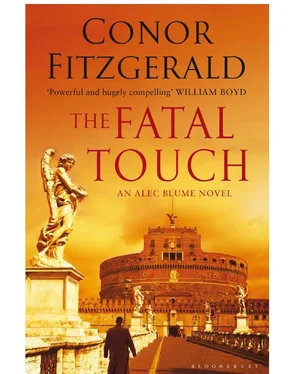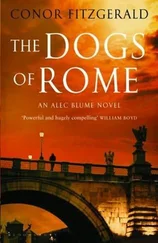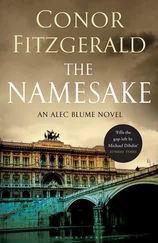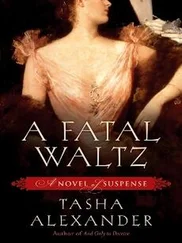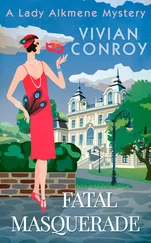Conor Fitzgerald - Fatal Touch
Здесь есть возможность читать онлайн «Conor Fitzgerald - Fatal Touch» весь текст электронной книги совершенно бесплатно (целиком полную версию без сокращений). В некоторых случаях можно слушать аудио, скачать через торрент в формате fb2 и присутствует краткое содержание. Жанр: Полицейский детектив, на английском языке. Описание произведения, (предисловие) а так же отзывы посетителей доступны на портале библиотеки ЛибКат.
- Название:Fatal Touch
- Автор:
- Жанр:
- Год:неизвестен
- ISBN:нет данных
- Рейтинг книги:3 / 5. Голосов: 1
-
Избранное:Добавить в избранное
- Отзывы:
-
Ваша оценка:
- 60
- 1
- 2
- 3
- 4
- 5
Fatal Touch: краткое содержание, описание и аннотация
Предлагаем к чтению аннотацию, описание, краткое содержание или предисловие (зависит от того, что написал сам автор книги «Fatal Touch»). Если вы не нашли необходимую информацию о книге — напишите в комментариях, мы постараемся отыскать её.
Fatal Touch — читать онлайн бесплатно полную книгу (весь текст) целиком
Ниже представлен текст книги, разбитый по страницам. Система сохранения места последней прочитанной страницы, позволяет с удобством читать онлайн бесплатно книгу «Fatal Touch», без необходимости каждый раз заново искать на чём Вы остановились. Поставьте закладку, и сможете в любой момент перейти на страницу, на которой закончили чтение.
Интервал:
Закладка:
“But unlike just about every other surrealist, none of whose works I can bear to look at, let alone honor by emulation, de Chirico is a draftsman. Nobody wins my affection and admiration more than a modern artist who still knows how to draw. His surreal works (which he insists on calling pittura metafisica, even though I think surreal will do just fine) have a command of line, shadow, and perspective like any of the old masters. He’s always closer to Mantegna than that mustache-twiddling Spanish showman Dali. To be sure, he messes about a bit, but he knows how it’s done.
“Another thing that marks him out from the others is the breadth and depth of his learning. His linguistic skills alone make him exceptional. Italian, Greek, German, French, English, Latin, and, of course, Russian (and what a beautiful Russian wife he has).
“A draftsman when he is being surreal, he is a classicist when he’s being post-modern (how I hate that term). Like me, he knows that the giants, Titian, Raphael, Rubens, and Velazquez, dwell in the past. Like me, he does freehand riffs on them, but unlike me, he imposes his own style on them. Me, I let their style speak directly through me.
“I prefer his ‘classical’ style. Most of all, I adore his references to Velazquez, his re-elaborations of Velazquez’s pictures of Villa Medici, Villa Falconieri. And Velazquez, of course was interpreting great Italian architects, some of them also mad, like Jacopo Zucchi. So when I copy de Chirico, I am drawing on layers and layers of great tradition.
“But here’s the thing. This is important. Pay attention those who love me. When I painted some works in the style of de Chirico, I found he did not have a style completely his own. He was uncomfortable with himself. He was a modernist, in other words. So my interpretation of de Chirico’s Villa Medici is different. I have made slight changes. It could be the same villa; it could be another one that is very similar. An attentive observer should be able to tell. Perhaps I am referring more to Velazquez in this work, which bears my signature and imprint. Some day it will be worth millions. And I am referring to the work itself, my painting, not just what it indicates.”
“None of this makes any bloody sense!” Nightingale exploded. “That bastard couldn’t paint Titian, Raphael, Rubens, Velazquez. I just told you that. De Chirico, yes-like Harry said, that was all draftsmanship.”
“That’s what had me wondering,” said Blume. “And what about the last bit about de Chirico, Velazquez? And the ‘Pay attention those who love me’?”
“I have no idea what he is on about,” said Nightingale. “No one loved him. Not even his own mother, if I recall his drunken confessions, which unfortunately I do. But I have no context to judge the meaning here. You really ought to let me have the notebooks.”
“I will,” promised Blume. “As soon as I work out one or two things for myself. Meanwhile, to judge from the uncharacteristically agreeable smile on your lawyer’s face, I don’t think he understood a fucking word of that. Explain it to him on your way out.”
Chapter 26
The youth did not say anything, but he sat down as asked.
“What’s your name?” she asked.
“Sandro.”
“Sandro, I want you to tell me what you know about the muggings of foreign tourists.”
“Nothing.”
Caterina’s feet hurt. Her bra strap was cutting into her side like it was made from bailing wire, and her eyes and nose felt hot, dry, and flaky.
“Your friends will be here soon. It will take twenty minutes at most.”
“I know nothing.”
“What was this I heard about you seeing something?” she asked, not holding out much hope for a meaningful response. It was probably a setup, Grattapaglia getting his revenge by showing her the sort of stuff he knew she couldn’t handle.
His suspension from duty, still her fault evidently, was just hours away. But she did not need him to prove she could not do what he did. She already knew that. She did not have his bulk, swagger, girth, experience, age, his bullying instincts and capacity for sudden violence, his slyness and menace. Maybe Blume was punishing her, too.
Stay there and question this one, Grattapaglia had ordered her; ordered her though she was his superior in rank; I’ll round up a few more. Then he abandoned her, against regulations, with a male youth and no supervisors anywhere.
The youth was shaking his stupid shaved head and mumbling something incoherent. What did you have to do to a child to allow him to become like this? Ignore him. That was probably all it took. That and the bad luck of giving birth to him in the first place.
She tried again, probing gently at first, then with more insistence. All she got were monosyllables. After twenty minutes, she had established that Sandro knew nothing about tourist muggings. All he knew is that when a patrol came to move him and his friends off the bridge, he had told the two cops they were cowards, hassling him and his friends but not bothering about rapists.
“What rapist?” asked Caterina automatically, wishing she hadn’t bothered.
“Maybe not a rapist. I don’t know.”
Which was why she shouldn’t have bothered asking.
“When was this?”
“On Tuesday, April 4.”
The precision seemed uncharacteristic, and caught her attention. “You remember the date?”
“It was three days after my birthday.”
“Happy birthday. How old are you?”
“Eighteen.”
“An adult now. What time did you see this incident?”
“Around three, four in the morning.”
“Where?”
“That piazza with the bar on the corner, you know. Trees. Behind Vicolo del Moro.”
“Are you talking about Piazza de’ Renzi?”
“I don’t remember the name.”
“Can you remember the name of a bar or anything?”
Sandro cleaned his nose with the back of his hand. Caterina fished a packet of Kleenex from her bag. “Use a tissue, for Christ’s sake, child. Clean your hand.”
He wiped his hand across his sleeve and said, “There’s a bar with two umbrellas. The bartender’s an asshole. I totally tagged the front of his bar.”
“You spray-painted his walls? I’m not going to follow up on this, so just say yes or no.”
“He caught me doing a throw-up on a wall once. It wasn’t even his wall, but he thought he’d intervene. He reported me to the cops, but not before he had tried to blind me spraying the aerosol into my eyes. So we’ve been targeting his bar.”
“Tell me what you saw.”
They were interrupted by shouting and curses and trampling feet that announced the arrival of Grattapaglia and three more youths. Two girls, no older than sixteen, and a kid who looked about fifteen.
They all wore tattoos and metal studs and rings on their faces, and as soon as they entered the basement, they seemed to converge on Caterina. They were aggressive, but they crowded her also like kids around a teacher, or greedy toddlers around a mother with candy. Two of them were clutching bottles of beer by the neck.
“You didn’t take the drink away?” Caterina asked Grattapaglia, who was standing with one foot against the wall.
“You afraid they’ll use the bottles as weapons? These creatures?”
A greatly pierced and abscessed girl walked with a sideways lurch, as if the bottle of Ceres she held in her hand weighed heavily.
Caterina said, “OK. Both of you put your bottles on the floor. Both of you.”
She stood patiently as a torrent of abuse flowed toward her, moving back and forth a few steps trying to show it did not bother her, but it did.
When they had stopped cursing her, they looked at each other for new ideas. Then the young boy detached himself from the group, picked up a beer bottle, and dangled it at his side. He went up to Caterina, leaned closer, then belched loudly in her face, opening his mouth wide.
Читать дальшеИнтервал:
Закладка:
Похожие книги на «Fatal Touch»
Представляем Вашему вниманию похожие книги на «Fatal Touch» списком для выбора. Мы отобрали схожую по названию и смыслу литературу в надежде предоставить читателям больше вариантов отыскать новые, интересные, ещё непрочитанные произведения.
Обсуждение, отзывы о книге «Fatal Touch» и просто собственные мнения читателей. Оставьте ваши комментарии, напишите, что Вы думаете о произведении, его смысле или главных героях. Укажите что конкретно понравилось, а что нет, и почему Вы так считаете.
